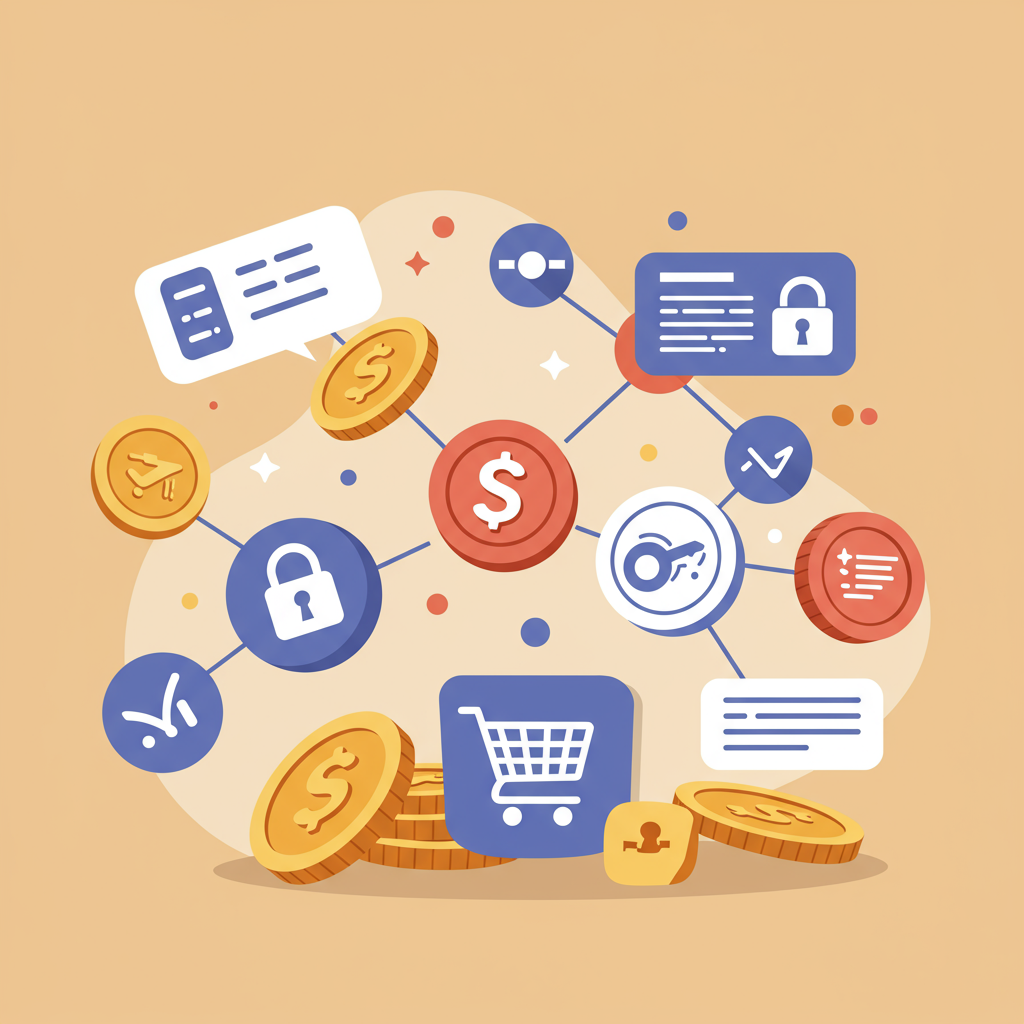Discover how blockchain-powered loyalty programs can transform engagement and build a thriving community for your e-commerce brand.
As a Shopify merchant, I’m constantly looking for innovative ways to connect with my customers and foster lasting relationships. The traditional loyalty programs, while effective to a degree, often feel a bit… flat.
That’s why I’ve been diving deep into the world of tokenized loyalty programs, and I believe they represent a significant leap forward for e-commerce businesses like ours.
At its core, a tokenized loyalty program leverages blockchain technology to create digital assets – tokens – that represent loyalty points, rewards, or even exclusive access.
Unlike traditional points systems stored in a centralized database, these tokens are decentralized, transparent, and often transferable, opening up a whole new realm of possibilities.
Think of it this way: instead of just earning points that only have value within your store, customers earn digital tokens that they truly own. These tokens can be fungible, like a cryptocurrency, or non-fungible (NFTs), representing unique digital collectibles or access passes.
The benefits for us, as Shopify merchants, are compelling. First, it significantly enhances customer engagement. Customers aren’t just accumulating points; they’re building a digital asset portfolio tied to their loyalty to your brand.
This ownership creates a deeper sense of connection and investment. They become part of a community, not just a customer list.
Secondly, it offers unparalleled transparency and security. Blockchain’s immutable ledger means every transaction – earning, spending, transferring – is recorded and verifiable, building trust with your customer base.
Third, tokenized programs can unlock new revenue streams. Imagine selling limited-edition NFTs that grant lifetime discounts or exclusive early access to new product drops. These aren’t just loyalty points; they’re valuable digital assets.
Fourth, it fosters a vibrant community. Token holders can form a community around your brand, discussing their tokens, trading them, and feeling a stronger sense of belonging. This organic community building is invaluable.
Fifth, it allows for greater personalization and tiered rewards. You can design complex loyalty structures where different token types or quantities unlock unique benefits, creating a truly bespoke experience for your most loyal customers.
Integrating a tokenized loyalty program with your Shopify store involves a few key steps. Typically, you’d use a third-party platform or develop a custom solution that bridges your Shopify data with a blockchain.
When a customer makes a purchase, completes an action (like leaving a review or referring a friend), or reaches a certain spending threshold, your system triggers the minting and distribution of tokens to their digital wallet.
These tokens can then be redeemed for discounts, exclusive products, early access, or even traded on secondary markets, depending on how you design your program.
For redemption, customers would connect their digital wallet to your Shopify store, and the system would verify their token balance before applying the reward.
I’ve found that understanding the two main types of tokens is crucial. Fungible tokens (like ERC-20 on Ethereum) are interchangeable, much like traditional loyalty points, but with the added benefits of blockchain.
Non-fungible tokens (NFTs, like ERC-721 or ERC-1155) are unique and cannot be replaced by another. These are perfect for exclusive digital collectibles, membership passes, or unique access rights.
Imagine an NFT that grants lifetime VIP status, or a limited series of NFTs tied to specific product launches. The possibilities for creativity are endless.
My advice for getting started is to first define your goals. What do you want to achieve with this program? Increased repeat purchases? Community building? Brand differentiation?
Next, research existing platforms. There are emerging solutions specifically designed for e-commerce that simplify the technical complexities of blockchain integration. Look for user-friendly interfaces and good Shopify compatibility.
Consider the legal and regulatory aspects. The world of digital assets is still evolving, so understanding the implications of issuing tokens in your jurisdiction is paramount. Consulting with legal experts is a wise step.
Marketing your program is also key. Educate your customers on what these tokens are, how they work, and the value they offer. Simplicity in explanation is crucial for adoption.
While exciting, I recognize there are challenges. User education is a big one; many customers are still new to digital wallets and blockchain. We need to make the process as seamless as possible.
Volatility of token value, if your tokens are tradable, is another consideration. You’ll need to design your program to mitigate potential risks.
Despite these hurdles, I firmly believe that tokenized loyalty programs are the future of customer engagement for Shopify merchants. They offer a powerful way to build deeper connections, reward true loyalty, and create a vibrant brand ecosystem.
What do you think about this article? Are you considering tokenized loyalty for your Shopify store, or do you have questions about how it could work for your specific business? I’d love to hear your thoughts.
By embracing this innovative approach, we can move beyond transactional relationships and cultivate a community of truly invested brand advocates. It’s an exciting time to be a Shopify merchant!






